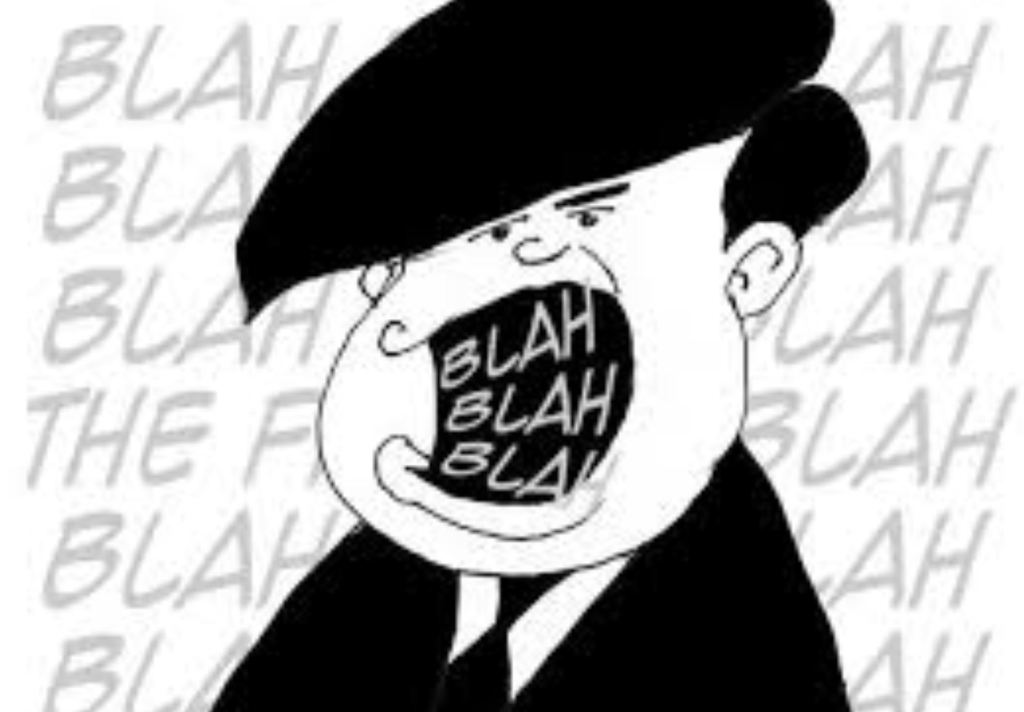For our ongoing contest, alert reader George King sent me this libido-sapper from Jean-François Lyotard’s 1974 Libidinal Economy. 355 words:
“We should not continue to confuse the closure of representation, that sarcastic discovery, that sham dropping of the scales from our eyes, by those thinkers who come and tell us: what is outside is really inside, there is no outside, the exteriority of the theatre is just as much its interiority — don’t mix up this sad piece of news, this cacangelism which is only the other side of evangelism, this wretched news that the artefact-bearers running along their little wall behind the backs of slaves who are bound and seated at the bottom of their cave, do not even exist, or what amounts to the same: that they themselves are only shadows in the cave of the sunlit world, reduplication of sadness — don’t go confusing this crestfallen message and this representation of an entirely closed theatre with our Moebian-Iabyrinthine skin, single-sided patchwork of all the organs (inorganic and disorganized) which the libido can traverse: for however well it is closed upon itself, it too, like a good Moebius band, is not at all closed in the sense of a volume, it is infinite, and contrary to the representative cube, intensities run in it without meeting a terminus, without ever crashing into the wall of an absence, into a limit which would be the mark of a lack, there is nothing the libido lacks in reality, nor does it lack regions to invest, the slender and very dark finger of her left hand which, in a conversation, the young woman, anxious because she is afraid of what she believes to be your erudition, passes over her eyebrow, while in the other hand she pulls at a cigarette — here is a real region to invest, one can die for it, one can give all one’s organicity, one’s ordered body, one’s functional arrangement of organs, one’s memory of organs, one’s socio-professional status, one’s supposed past and one’s supposed future, one’s agenda and one’s intimate theatre, one can feci like paying very dearly, exorbitantly, for this finger which is like an engraver’s stylus and the whole orbital space, cranial, vaginal, that it engenders around the eye.” (p. 4)
Thus, updating the contest list, we now have the eight wordiest as:
1. Lyotard: 355 words.
2. Kierkegaard: 330 words.
3. Locke: 309 words.
4. Kant: 286 words. Also 174 words. Also: 163 words.
5. Moore: 239 words.
6. Aristotle: 188 words.
7. Bentham: 164 words.
8. Mill: 161 words.
